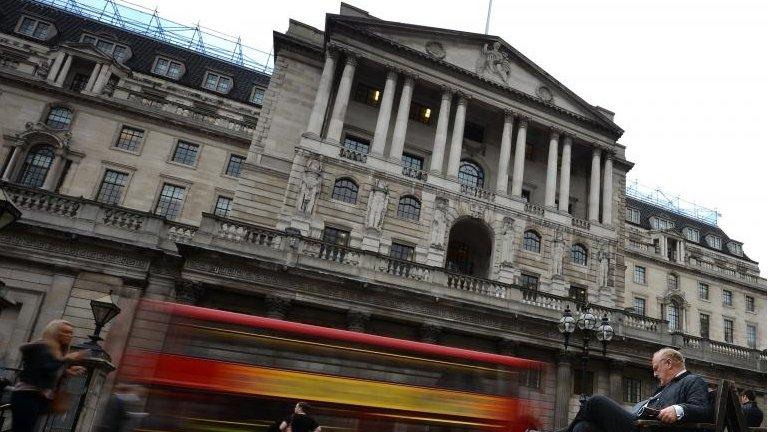Who are the MPC? Meet the UK's interest rate setters
- Published
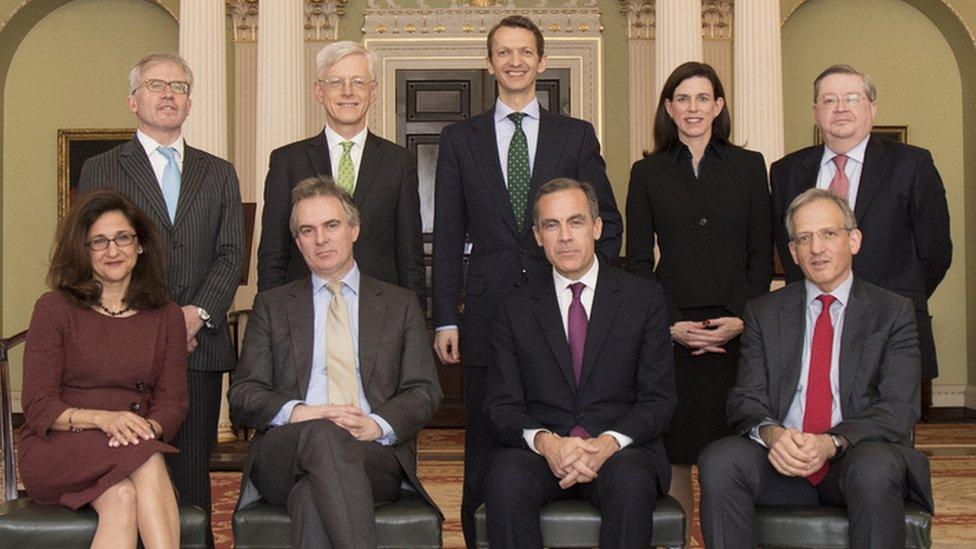
The most recent photo of MPC members. David Miles (far left of back row) departed last month
Every month a select group of just nine people who make up the Bank of England's Monetary Policy Committee (MPC) determine the level of the UK's interest rates.
The committee was set up in May 1997, when the incoming Labour government gave the Bank independent control over setting rates, which had previously been decided by the Treasury.
In setting rates, the MPC's primary aim is to try to control UK inflation.
The MPC comprises five senior Bank officials, and four external experts who are appointed by the chancellor for renewable three-year terms.
What do we know about these nine men and women?
Mark Carney, governor
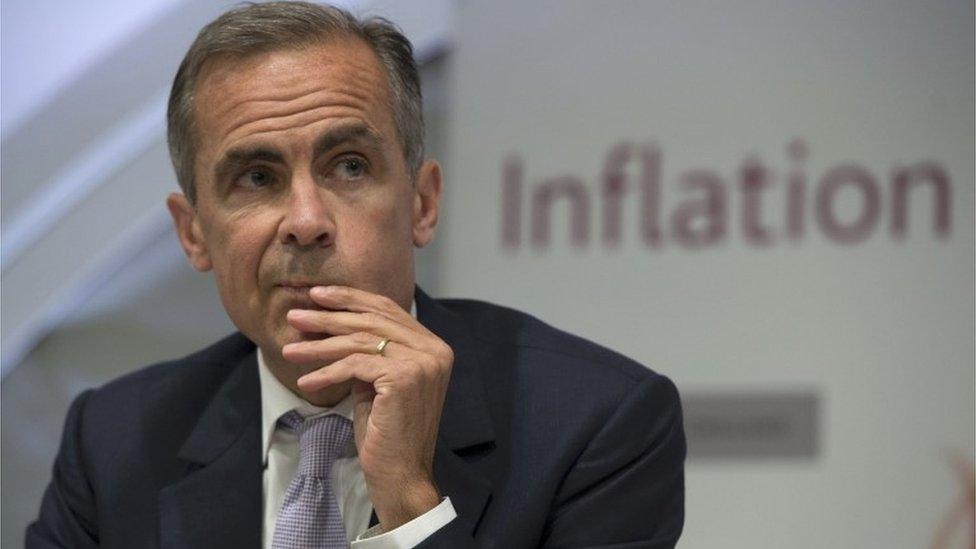
Who is he?
Canadian Mark Carney took office two years ago. As well as being the governor of the Bank of England he is the chairman of the MPC - and the other key committees at the Bank.
Born in 1965, in the remote town of Fort Smith in Canada's Northwest Territories, he has an economics degree from Harvard University in the US.
There was a bit of controversy from some quarters when the chancellor appointed a Canadian as governor, but Mr Carney, 50, is hardly a stranger to the UK. His masters and doctorate in economics are both from Oxford University.
He also spent part of his 13-year career with investment bank Goldman Sachs in its London office. His last post before coming to take charge at the Bank of England was as governor of the Bank of Canada.
Anything else?
He's sporty, a hockey player and a marathon runner, completing the London marathon this year. And he sometimes runs to work and back from his home in West Hampstead - about five miles from the Bank of England building.
Ben Broadbent, deputy governor, monetary policy
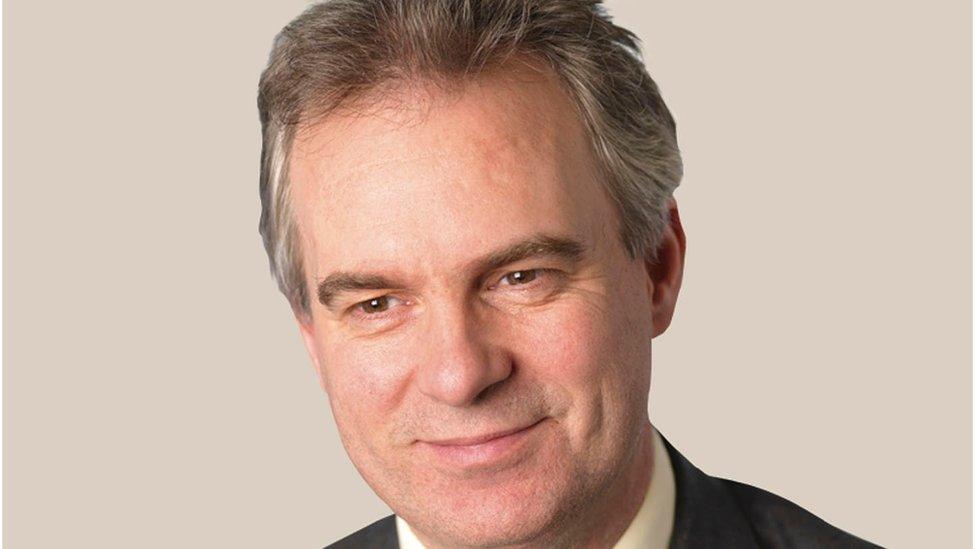
Who is he?
While Mr Broadbent became deputy governor just over a year ago, he has been on the MPC since 2011, when he was appointed as an external member.
He's another member of the Goldman Sachs club, where he was its senior European economist.
Mr Broadbent has also been assistant professor of economics at Columbia University In New York, and was a one-time economic adviser to the Treasury.
His initial economics degree is from Cambridge University, and like Mr Carney he also attended Harvard, where he got his doctorate in the same subject.
Anything else?
His wider interests include classical music (piano and violin), hill walking, cricket and football. And while at the Treasury he was reported to favour wearing homely jumpers.
Nemat Shafik, deputy governor, markets and banking
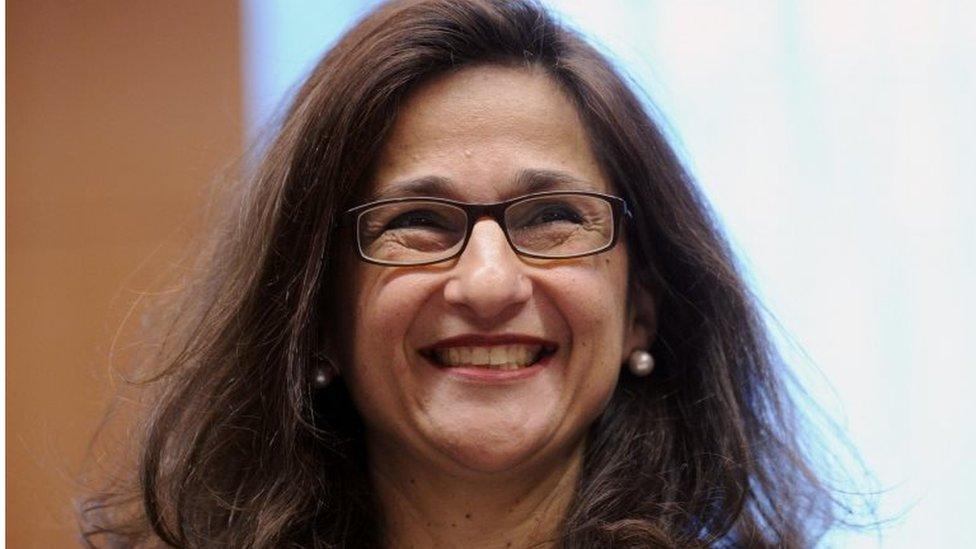
Who is she?
Nemat Shafik joined the Bank last year, and likes to be known by her nickname Minouche.
Born in Egypt, her family emigrated to the US when she was four years old.
Prior to joining the Bank, the 53-year-old was deputy managing director of the International Monetary Fund.
She was also the youngest ever vice president at the World Bank, taking up that role when she was just 36.
She has a masters in economics from the London School of Economics, and a doctorate in the same subject from Oxford University.
Anything else?
She has a natty turn of phrase. There is the "sticky door" that she says women must push through to succeed. And she calls herself an "owl" rather than a dove or a hawk, the two words typically used to describe those soft or hard on inflation. She also writes on a wide variety of economic topics, including this one with this pleasing title of Goodbye ambiguity, hello clarity, external.
In 2015 she was ranked number 66 in Forbes' list, external of the world's most powerful women.
Sir Jon Cunliffe, deputy governor, financial stability
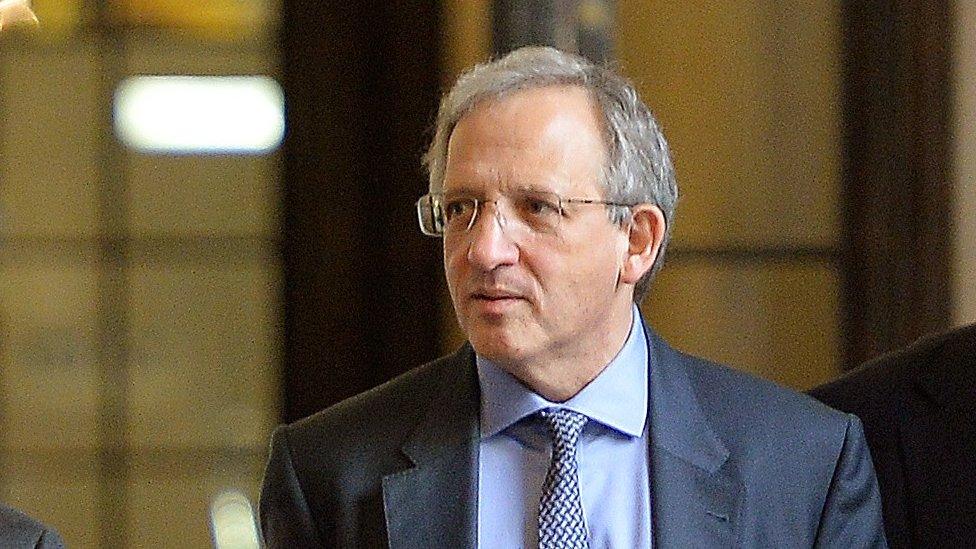
Who is he?
Sir Jon took up his post two years ago, but probably knew what he was getting into, as he led the Treasury's work on how to get the Bank operationally independent.
He brings a breadth of government experience to the MPC.
He has served as the UK's permanent representative to the European Union, was a prime ministerial adviser on Europe and global issues, and a senior civil servant at both the Treasury and Department for Transport.
His background also differs from the others' in that his masters degree is in English from the University of Manchester.
Anything else?
He caused a stir last year when he warned that rising house prices posed the biggest risk to the UK economy.
Andrew Haldane, executive director, monetary analysis and chief economist
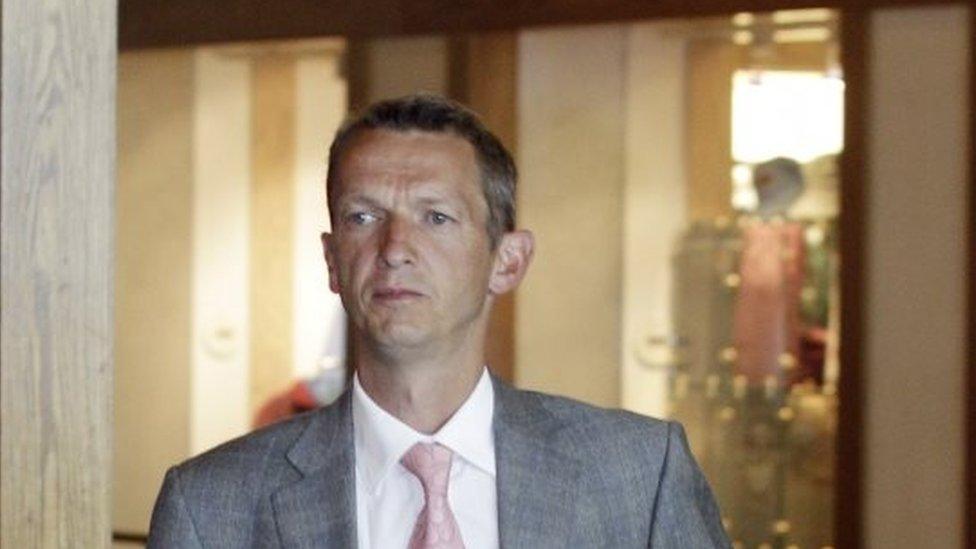
Who is he?
Mr Haldane, 48, is a long-standing Bank employee, having joined in 1989 after he completed his masters in economics at the University of Warwick.
Joining the MPC last year, he is now in charge of research and statistics across the Bank.
Mr Haldane is also co-founder of Pro Bono Economics, a charity that tries to persuade economists to work for charities for free in their spare time.
Anything else?
A speech he gave at the 2012 gathering of global bankers at Jackson Hole, Wyoming, entitled "The Dog And The Frisbee", external was very well received in the US financial press.
Two years later Time magazine voted Mr Haldane one of the 100 most influential people in the world, external.
In 2012 he also said that the Occupy anti-capitalism movement was correct to criticise the international financial system.
Kristin Forbes, external member
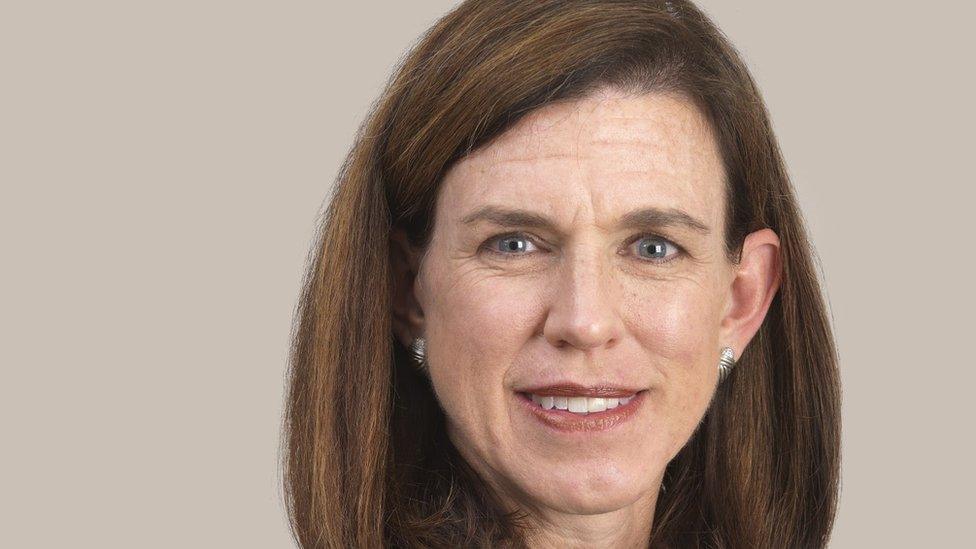
Who is she?
Kristin Forbes, 45, an American economist, joined the MPC last year.
She's an experienced political player, having been deputy assistant secretary in the US Treasury Department, and an adviser to President George W Bush.
Ms Forbes is currently also the professor of management and global economics at the Massachusetts Institute of Technology.
She's also been at the World Bank and investment bank Morgan Stanley.
Anything else?
She's another sporty one and is keen on tennis, travelling, hiking, and mountain climbing, and has run the Boston marathon.
Ian McCafferty, external member
Who is he?
Ian McCafferty has been on the MPC for three years.
He has stronger industry links than the others, having previously been chief economic adviser to the CBI, and as head of macroeconomics at BP.
The 59-year-old also has City credentials, having worked for Natwest Markets and Baring Securities.
He's been keen on raising rates, voting five times last year - together with fellow member Martin Weale - for a 0.25 percentage point rise. However, on all five occasions the other seven members of the MPC voted for no change.
Mr McCafferty was also a lone voice calling for a vote rise last month. Everyone else voted for rates to remain unchanged.
Anything else?
He did his masters in economics on the continent, studying at the University of Amsterdam. He also speaks French.
Gertjan Vlieghe, external member
Who is he?
Gertjan Vlieghe has only just joined the MPC, taking up his post at the start of this month.
The 44-year old is not entirely new to the Bank though, as he was an economic assistant to the former Bank governor, Mervyn King.
His experience straddles the City and academic worlds. He was a partner and senior economist at investment firm Brevan Howard Asset Management, a bond strategist at Deutsche Bank, and he holds a doctorate from the London School of Economics.
Anything else?
Mr Vlieghe has dual British and Belgian citizenship. He fits in on the fitness front, he's also keen on sports and enjoys running, cycling and skiing. He is a keen photographer and reads a lot of financial history.
Martin Weale, external member
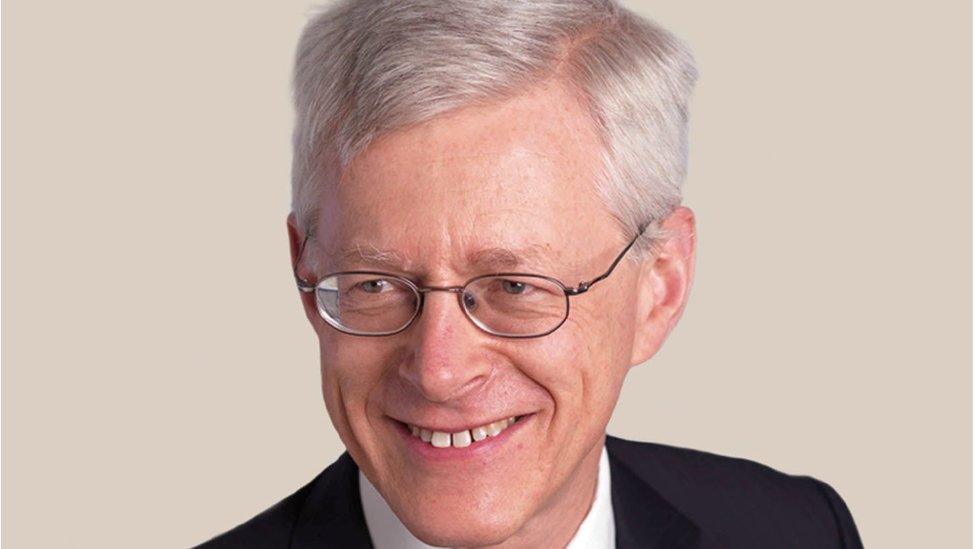
Who is he?
Mr Weale has been on the MPC since 2010, and this is his second three-year term.
Before that the 60-year-old was director of the well-respected National Institute of Economic and Social Research, and has been a lecturer in economics at the University of Cambridge.
His work interests include issues connected with pensions, retirement behaviour, and the adequacy of overall saving.
Along with Ian McCafferty he voted five times last year for a rate rise, but has since voted each time for no change.
He was appointed CBE for his services to economics in 1999.
Anything else?
After graduating from Cambridge University he spent two years working in Africa for the National Statistics office in Malawi.
- Published31 March 2015

- Published19 August 2015
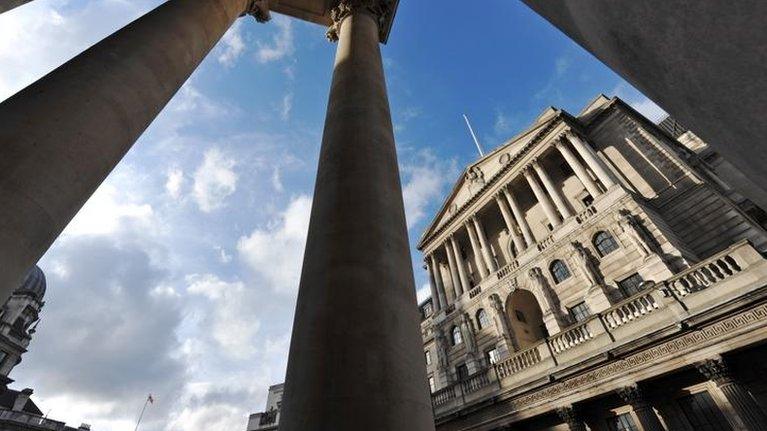
- Published22 July 2015
